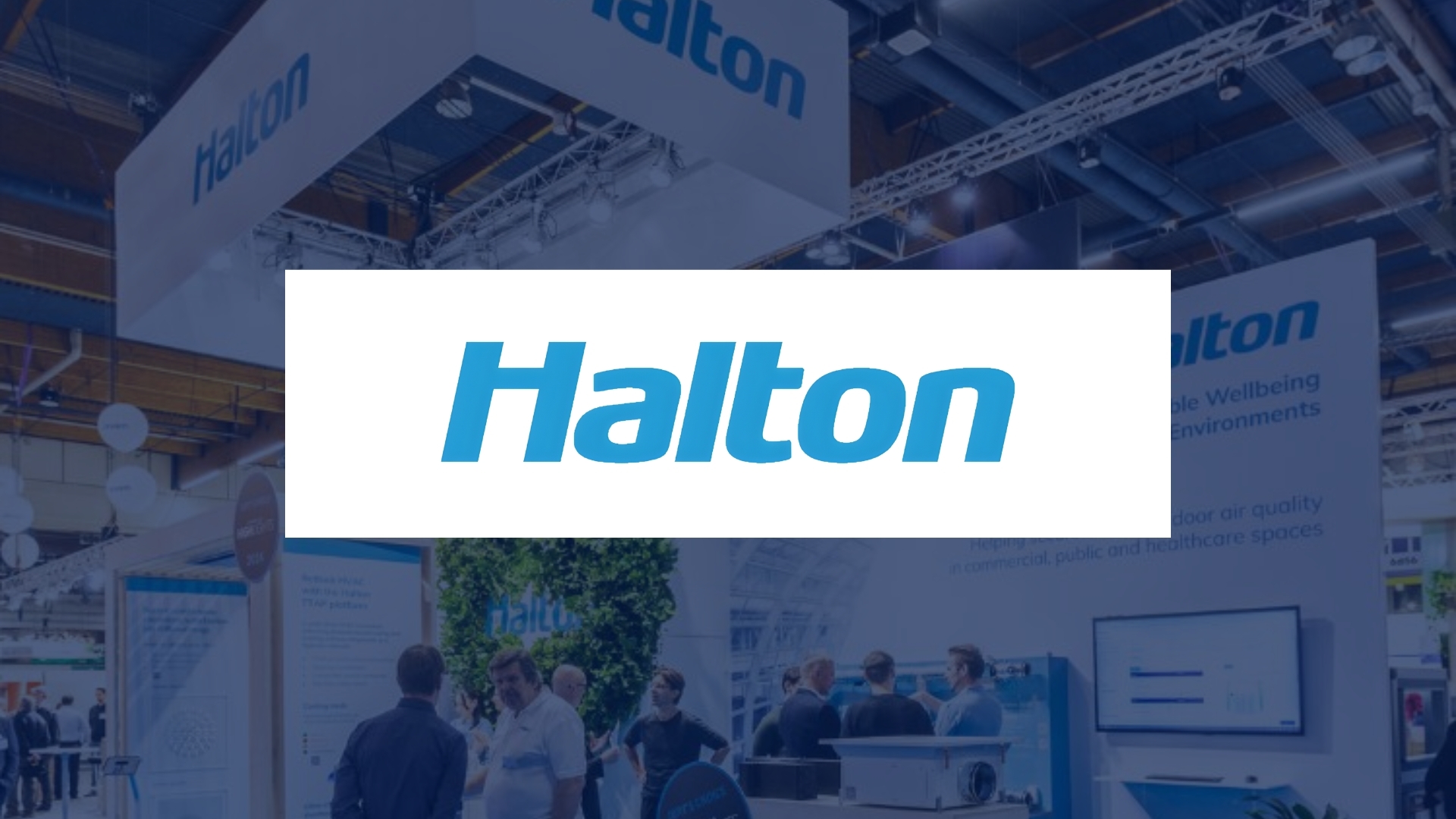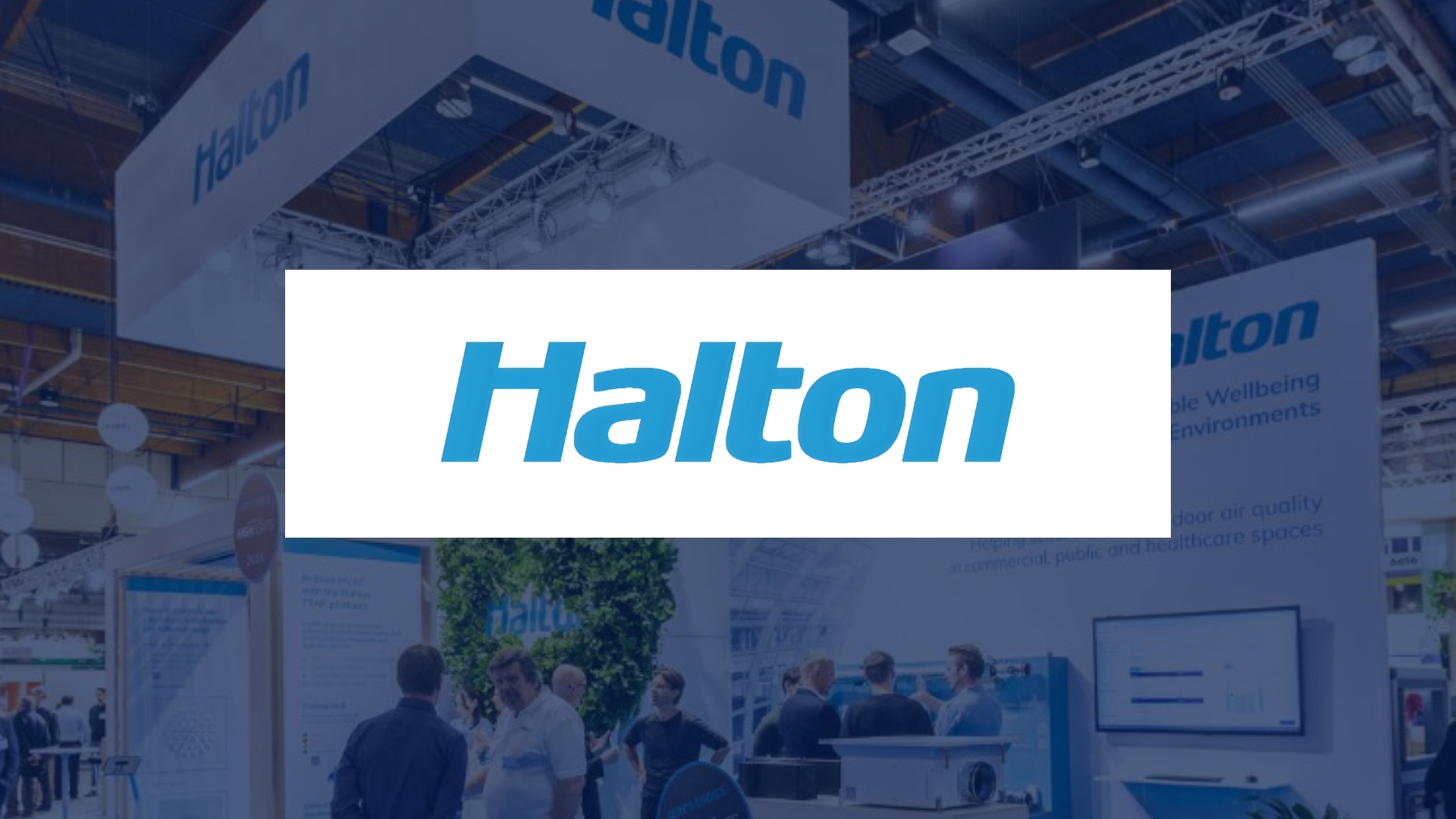


Keep this story going! Share below!
Halton provides safer and more energy-efficient working spaces in a wide range of industries. With their improving indoor air solutions, Halton improves organizations’ employees well-being while aiming towards more sustainable energy consumption.
Halton's M.A.R.V.E.L solution incorporates demand controlled ventilation and IRIS infrared sensors to control ventilation airflow in kitchens. The innovation minimizes wasted energy, by adjusting the airflow according to the real time status of the kitchen.
A key feature of this solution is incorporating Demand Controlled Ventilation. M.A.R.V.E.L is based on Halton’s IRIS infrared sensors, which the company has also patented. These sensors scan cooking areas in order to respond instantly to changes in cooking temperatures. The quick response means that the ventilation will immediately extract the excess heat and vapors, without needing to wait for the smoke to rise all the way up to the sensors.
The ventilation controls adjust the real time kitchen exhaust airflow rates. Exhaust is reduced when it is not needed and increases when cooking temperatures are about to rise. The demand controlled ventilating means that temperatures in the kitchen stay at a stable level, and the kitchen won’t get full of steam from cooking. This solution both saves a lot of energy, but also makes the work more pleasant for kitchen staff.

The overall inspiration has always originated from a deep commitment to both people and the planet. As Riikka Paarma explained “We are contributing to a safe, more sustainable planet where people can thrive and where well-being exists. It is part of our DNA and how and why we do our product development and our innovation work.” This mindset has guided Halton to balance both technical performance as well as environmental responsibility.
The company focuses mostly on demanding environments, such as hospitals, professional kitchens and offshore facilities, where listening to customer needs is highly important. As mentioned by Paarma: “In these crucial environments, there is always something to work further and where to grow, innovate and do things better. Also indoor air quality has a positive impact on issues around productivity.”
The focus both on humans and the environment has been rooted in the values of this family-owned company for more than 55 years. Yet, this does not stop Halton to create indoor air solutions that aim for healthier, safer and more sustainable products and systems.
The overall impact of the M.A.R.V.E.L solution is arguably huge. The technology, designed for commercial kitchens, benefits not only work personnel, but also the owners of establishments due to energy savings and efficiency. Some of the key benefits of the innovation include energy saving caused by the reduction of exhaust airflow rates by up to 64%. In addition to this, energy reductions are realized through the reduction of energy used to cool, warm and filter make-up air and reductions in the electricity consumption of fans, hereby, commercial kitchens profitability is improved.
Short term impacts of M.A.R.V.E.L can be understood as reduction of noise levels and the risk of air drafts for chefs. Hereby the solution makes kitchens a better work place and may help in retaining trained personnel within a sector that has seen challenges in doing so in the past. In the long term, like mentioned above, the innovation can produce large savings for companies in addition to benefitting the environment due to reducing the environmental impacts of the catering business which is one of the most energy-consuming activities within the United States.
M.A.R.V.E.L can benefit a business in many ways. Perhaps the bain benefit, from the perspective of a company, is the savings in energy. M.A.R.V.E.L is a Demand Controlled Ventilation, which is designed to drastically reduce exhaust airflow in commercial kitchens. This significantly lowers energy consumption related to kitchen ventilation and improves work conditions while enhancing fire safety. The innovation can lead up to a 44%reduction in exhaust airflow, and if combined with Halton’s Capture Jet technology, the total exhaust airflow reduction can reach 64%. In simple terms, the less support air required, the smaller the energy bill will be for heating or cooling of the makeup air. Hereby a 64% reduction in airflow equals a 64% saving on the energy bill, which can arguably make a huge impact on a company’s success and longevity.
Halton is a technology leader in indoor air solutions for demanding spaces, transforming buildings and cities with innovations that are seen as beneficial for people and the environment. In broader view, Halton’s highly energy-efficient systems and investments to critical environments, such as kitchens, makes them more than just a service provider. Instead, Halton is a driver for practical and high-impact innovations.
Their best known innovations systems, such as M.A.R.V.E.L., deliver measurable benefits for the environment. With their specifically optimized kitchen ventilation system, the energy usage and emissions have decreased, since 64% of the exhaust airflow has been able to be cut. This has resulted both in reducing environmental footprint and lowering the operational costs.
However, the impacts are not only limited to the environment, but Halton provides societal benefits as well. In the commercial kitchens and offshore facilities, the advanced ventilation systems improve air quality while increasing employees’ well-being and health. Overall, these solutions improve the organizations’ safety, increase sustainability and cost-efficiency while increasing the likelihood of employees remaining at their work and feeling of productivity along with many other benefits.
Overall, Halton has a long experience combining technical expertise with sustainability. Halton has demonstrated examples on how to be environmentally responsible while providing healthier indoor surroundings. Today, Halton shows this example in over 35 countries, simultaneously contributing to cleaner air, safer workplaces and lower energy use. This proves that with technology one can, in fact, simultaneously contribute to both societal well-being and greener environment.
Get stories of positive business innovations from around the world delivered right to your inbox.
Riikka Paarma, Chief strategy and sustainability officer

Halton Group is a family-owned global technology leader that is focusing on indoor air solutions especially in demanding spaces. They are creating safer and more energy-efficient working spaces in a wide range of industries, such as healthcare, hospitality and public spaces. With their improving indoor air solutions, Halton improves organizations’ employees well-being while aiming towards more sustainable energy consumption.